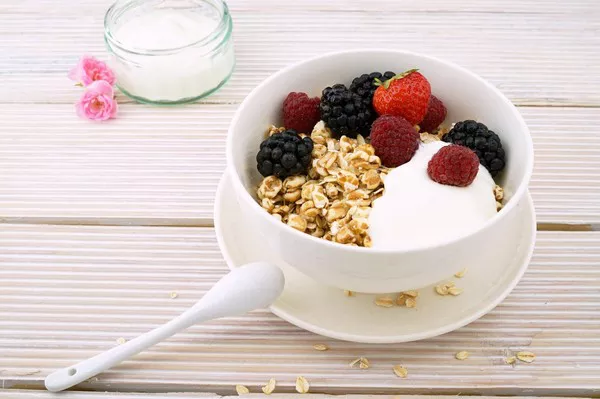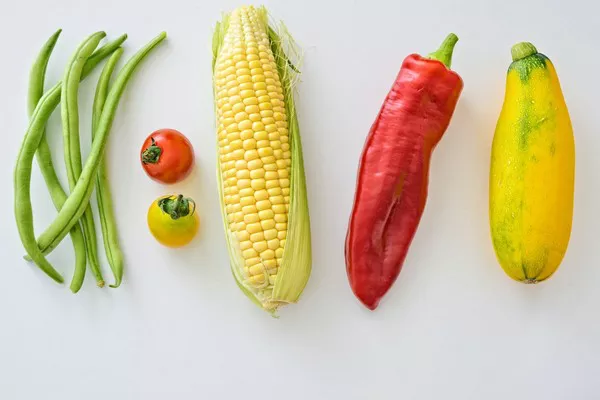As the popularity of vegetarian diets continues to rise, so does the importance of understanding the specific nutrient requirements associated with this dietary choice. While a well-planned vegetarian diet can offer numerous health benefits, it’s essential to be mindful of potential nutrient gaps, especially when it comes to vitamins. In this article, we delve into the vitamins that are particularly relevant for vegetarians, exploring their roles, sources, and the strategies to ensure a balanced and nourishing diet.
The Vegetarian Advantage
Vegetarian diets, which exclude meat, poultry, and fish, are celebrated for their positive impacts on health and the environment. They are often rich in fiber, antioxidants, and plant-based nutrients. However, certain vitamins primarily found in animal products can be challenging to obtain from plant sources alone. Let’s explore the key vitamins that vegetarians should pay attention to.
1. Vitamin B12: Vital for Nervous System Function
Role: Vitamin B12 is essential for maintaining healthy nerve cells, aiding in the production of DNA and RNA, and supporting red blood cell formation. It plays a crucial role in preventing a type of anemia known as megaloblastic anemia.
Sources: Vitamin B12 is primarily found in animal products such as meat, fish, eggs, and dairy. For vegetarians, fortified foods like plant-based milk, cereals, and nutritional yeast can provide a source of this essential nutrient.
Supplementation: Given the limited natural plant sources of vitamin B12, many vegetarians opt for B12 supplements to ensure adequate intake. Consult a healthcare professional to determine the appropriate dosage.
SEE ALSO: What is B12 Vitamins: A Complete Overview
2. Vitamin D: Essential for Bone Health
Role: Vitamin D is crucial for calcium absorption and bone health. It also supports immune function and helps regulate mood.
Sources: While vitamin D is synthesized by the body through sun exposure, it can be challenging to obtain adequate amounts from food alone. Some vegetarian sources include fortified dairy alternatives and UV-exposed mushrooms.
Supplementation: Due to limited dietary sources and varying sunlight exposure, vitamin D supplementation may be necessary, especially in regions with minimal sunlight. Consult a healthcare professional for personalized recommendations.
3. Iron: Ensuring Optimal Oxygen Transport
Role: Iron is vital for oxygen transport in the blood and plays a central role in energy production and immune function.
Sources: Vegetarians can obtain iron from plant-based sources like legumes, tofu, nuts, seeds, and whole grains. Consuming vitamin C-rich foods alongside iron-rich foods enhances iron absorption.
Attention to Absorption: Non-heme iron from plant sources is less readily absorbed than heme iron from animal products. Enhance iron absorption by avoiding calcium-rich foods and beverages during iron-rich meals.
4. Calcium: Building Strong Bones
Role: Calcium is essential for bone health, muscle contraction, and nerve transmission. It also plays a role in blood clotting.
Sources: Vegetarian calcium sources include dairy alternatives fortified with calcium, leafy greens like kale and collard greens, almonds, and sesame seeds.
Consider Calcium Intake: While plant-based sources of calcium are available, it’s essential to monitor your intake to ensure you’re meeting your calcium needs, especially if you avoid dairy.
5. Omega-3 Fatty Acids: Supporting Heart and Brain Health
Role: Omega-3 fatty acids, particularly EPA and DHA, are beneficial for heart and brain health, as well as reducing inflammation.
Sources: Plant-based sources of omega-3s include flaxseeds, chia seeds, walnuts, and hemp seeds. However, these sources provide ALA, a precursor to EPA and DHA.
Supplementation: To ensure sufficient EPA and DHA intake, vegetarians can consider algae-based omega-3 supplements, which offer a sustainable and animal-friendly source.
6. Zinc: Boosting Immune Function
Role: Zinc is crucial for immune function, wound healing, and cell division. It also supports normal growth and development during pregnancy, childhood, and adolescence.
Sources: Vegetarian zinc sources include legumes, nuts, seeds, whole grains, and dairy alternatives.
Attention to Phytates: Some plant foods contain compounds called phytates that can inhibit zinc absorption. Soaking, sprouting, or fermenting these foods can help reduce phytate content and enhance zinc absorption.
7. Vitamin K: Essential for Blood Clotting and Bone Health
Role: Vitamin K is vital for blood clotting, bone health, and plays a role in regulating calcium levels in the body.
Sources: Vegetarians can obtain vitamin K from dark leafy greens like spinach, kale, broccoli, and Brussels sprouts.
Varied Diet Matters: A varied and balanced vegetarian diet that includes a range of vitamin K-rich foods can help ensure adequate intake of this nutrient.
SEE ALSO: 10 Foods Contain Vitamin K for Your Bodily Functions
Addressing Potential Nutrient Deficiencies in a Vegetarian Diet
It’s important to be proactive in addressing potential nutrient deficiencies that may arise due to the exclusion of certain animal products. With careful planning and awareness, vegetarians can ensure they meet their nutritional needs and maintain optimal health. Here’s how to address potential deficiencies effectively:
1. Educate Yourself: Understand Nutritional Needs
The first step in addressing potential deficiencies is to educate yourself about the essential nutrients found in various foods. Learn which nutrients are primarily obtained from animal products and explore plant-based alternatives that can provide similar benefits.
2. Diversify Your Diet: Embrace Variety
Eating a wide variety of plant-based foods is key to obtaining a range of nutrients. Different foods contain different nutrients, so aim to include a colorful array of fruits, vegetables, whole grains, legumes, nuts, and seeds in your diet.
3. Fortified Foods: Explore Fortified Options
Fortified foods can be valuable sources of certain nutrients that are more abundant in animal products. Look for fortified plant-based milk, cereals, and nutritional yeast, which can provide essential vitamins such as B12 and vitamin D.
4. Include Protein-Rich Foods: Prioritize Protein
Protein is a crucial nutrient for maintaining muscle mass, immune function, and overall health. Incorporate protein-rich plant foods such as beans, lentils, tofu, tempeh, seitan, quinoa, and nuts into your meals to ensure adequate protein intake.
[inline_related_posts title=”SEE ALSO” title_align=”left” style=”list” number=”3″ align=”none” ids=”1340,1314,1257″ by=”categories” orderby=”rand” order=”DESC” hide_thumb=”no” thumb_right=”no” views=”no” date=”yes” grid_columns=”1″ post_type=”” tax=””]
5. Plan Balanced Meals: Think Nutrient Pairing
When planning your meals, aim to include a combination of protein, healthy fats, whole grains, and a variety of vegetables. This approach ensures a balance of nutrients and enhances overall nutrient absorption.
6. Consult a Professional: Registered Dietitian
If you’re unsure about meeting your nutrient needs on a vegetarian diet, consider consulting a registered dietitian who specializes in plant-based nutrition. They can provide personalized guidance tailored to your dietary preferences and health goals.
Conclusion
A well-planned vegetarian diet can provide a multitude of health benefits, but it’s crucial to pay attention to potential nutrient gaps. Incorporating a diverse range of nutrient-rich plant foods and being mindful of the vitamins discussed can help ensure that vegetarians receive the necessary nutrients for optimal health. Consulting a registered dietitian or healthcare professional can provide personalized guidance tailored to individual dietary preferences and requirements. Remember, with proper planning and knowledge, a vegetarian diet can be both nourishing and fulfilling, promoting well-being and vitality.
[inline_related_posts title=”Related Topics” title_align=”left” style=”list” number=”3″ align=”none” ids=”1508,1486,1481″ by=”categories” orderby=”rand” order=”DESC” hide_thumb=”no” thumb_right=”no” views=”no” date=”yes” grid_columns=”1″ post_type=”” tax=””]


































